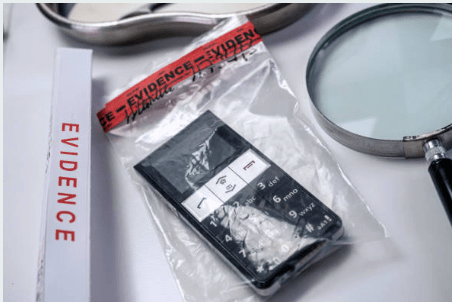The hyper-connected world has brought mobile devices into our daily lives. From personal communication to business transactions, these devices are treasure troves of information. Therefore, mobile forensic becomes very essential for the extraction, analysis, and preservation of this data for investigative and legal purposes.
What is Mobile Forensics?
Mobile forensics is the practice of gathering digital proof from all mobile handsets, such as smartphones and tablets, and other portable devices. The process includes finding, obtaining, preserving, evaluating, and presenting data present within these devices for investigative purposes. Mobile forensics is one of the imperative disciplines within digital forensics-it can be used within criminal investigations, corporate investigations, and even personal data recovery.
Why Mobile Forensics is Important
Mobile forensics has evolved to be highly essential in this contemporary environment since mobile devices hold significant volumes of information. They contain sensitive personal details like contacts, call logs, emails, texts, photos, social media interactions, and even location-related data-all which can be very imperative in evidence. Mobile forensics play major role in aspects like
- Investigative analysis of crimes: It can help law enforcement retrieve data from a criminal who may solve, trace or provide digital evidence for courts.
- Corporate investigations: Helps businesses trace their data breach, fraud, and violation of internal policies.
- Court litigation: Especially in cases of civil litigation; it supports litigation by retrieving important data like emails and text messages.
- Data recovery: Helps recover lost or deleted data from the user’s mobile device.
Service Provided under Mobile Forensics
Mobile forensic services typically involve the following:
- Data Recovery: Recovered deleted or lost information that could include messages, contacts, and files.
- Call and Message Log Analysis: Analyzes the history of calls, SMS, and instant messaging applications.
- GPS and Location Tracking: An analysis of GPS data and geolocation history mapping a device’s movement.
- App Analysis: Extraction and review of data from WhatsApp, Facebook, Instagram, etc.
- Network Analysis: Which Wi-Fi networks and Bluetooth devices this device connected to, as well as which cellular towers it contacted.
- Cloud and Backup Data Recovery: Recovery of information from cloud backups or synced accounts.
Digi9 offers these crucial services in mobile forensics, making sure that data investigations are detailed, professional, and customized according to clients’ needs.
Mobile Forensic Techniques
- Physical extraction: This involves accessing the entire memory of the device. It connects directly to its interior and is helpful in recovering deleted data.
- Logical extraction: This involves acquiring data that is actually stored on the device without disturbing its integrity. Often, it involves using an existing backup or a normal sync.
- File system extraction: It is one method for accessing all possible files on a mobile device. Basically, it is a total representation of the hierarchy of the file system of the system.
- Cloud extraction: Extract data from cloud backups, probably in cases where a user has synchronized their data with an online service.
Mobile Forensic Tools

- Cellebrite: One of the most widely used tools that will extract data from cell phones; it is heavily used by law enforcement
- Oxygen Forensic Suite: Can provide full mobile data analysis, including messages deleted and metadata from some applications.
- Magnet AXIOM: It is the tool used in recovery, analysis, and presentation of digital evidence from a wide range of mobiles.
- XRY: It is a forensic tool used in extraction and analysis of mobile data. It is used in most investigations.
Challenges in Mobile Forensics
Mobile forensics is not without challenges. The challenges include:
- Encryption and security: Modern cell phones come with the encryption feature, and it is cumbersome to access such data since it needs the passcode or specific credentials.
- Variety of OS: With the various versions of Android, iOS, and other proprietary operating systems, an investigator will have to use different techniques for a particular device.
- Updates: Application as well as OS software updates introduce new encryption methods or might alter how access is granted or data is stored.
- Data Storage: Since cloud computing, mobile data is often synced or saved on third-party servers making recovery more difficult.
Conclusion
Mobile forensics is an important artefact in modern investigations, to be able to furnish insights into scenarios both personal and corporate. The more that mobile devices change, the more demand will come for special forensic services. Digi9 offers full mobile forensic services by which it enables the recovery, analysis, and securing of digital evidence to assist in the accuracy and competence of investigations.


